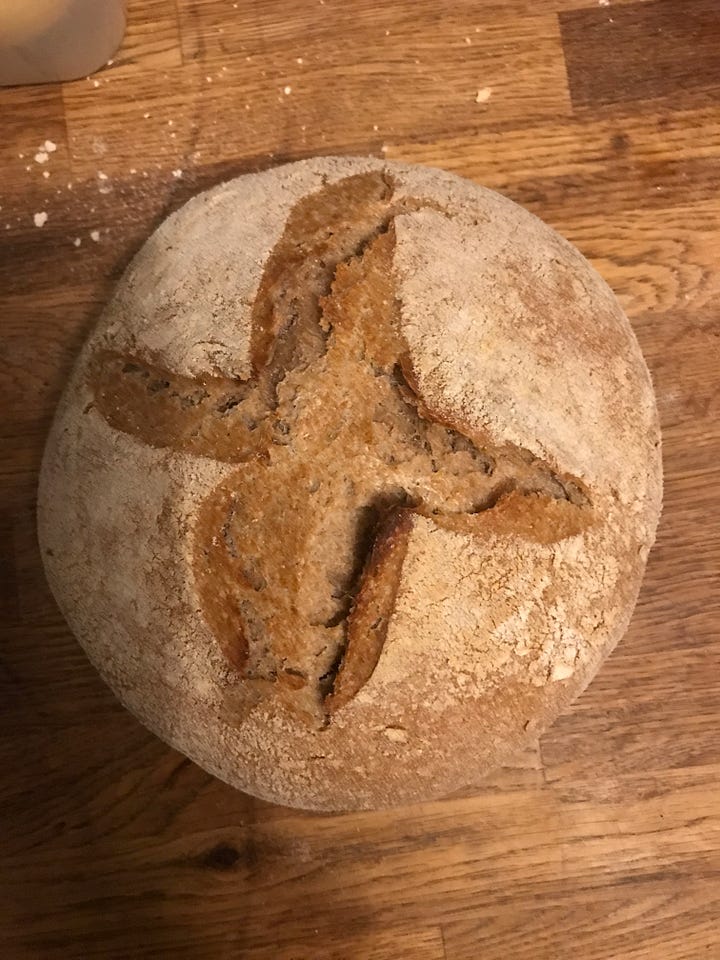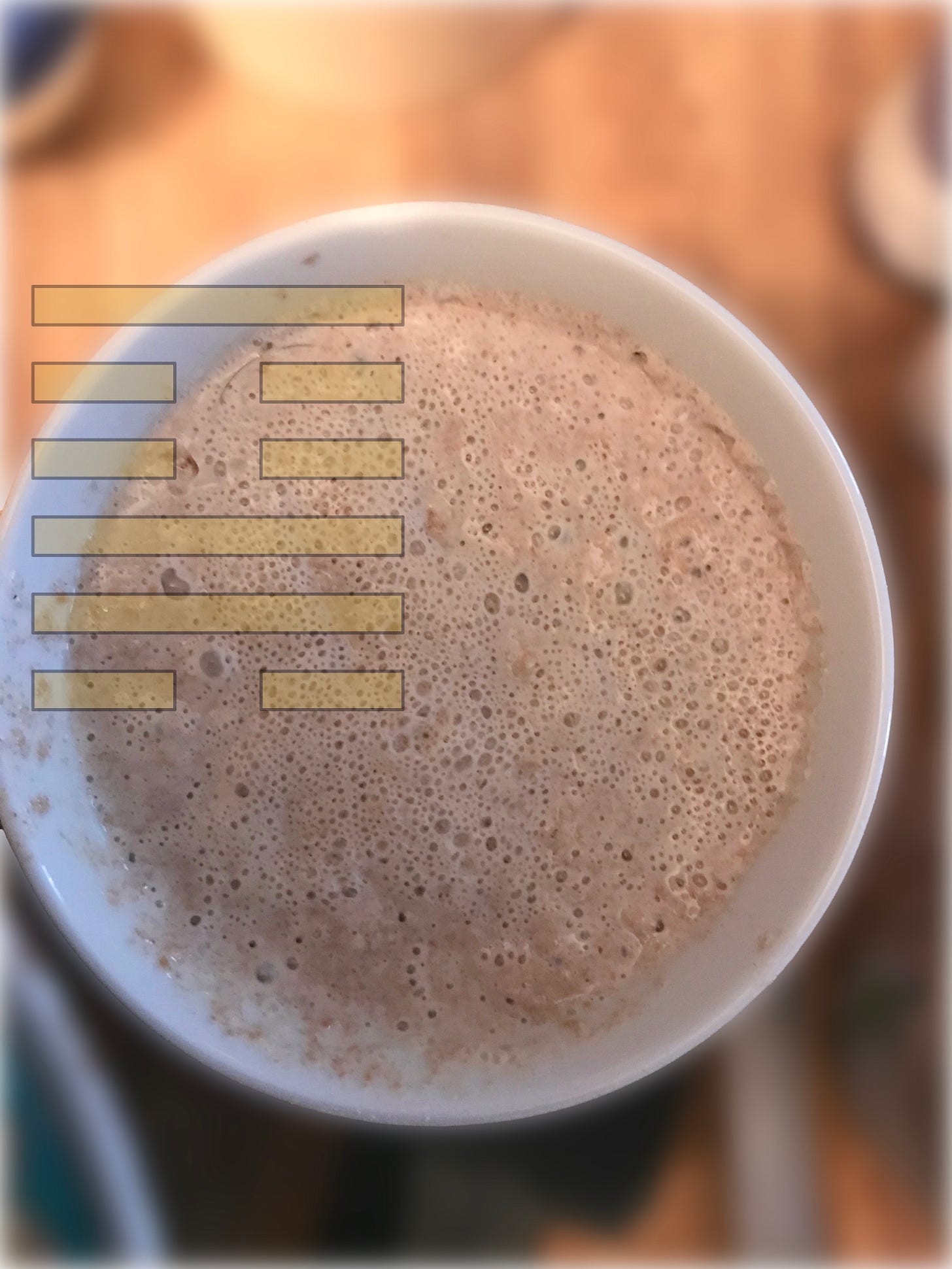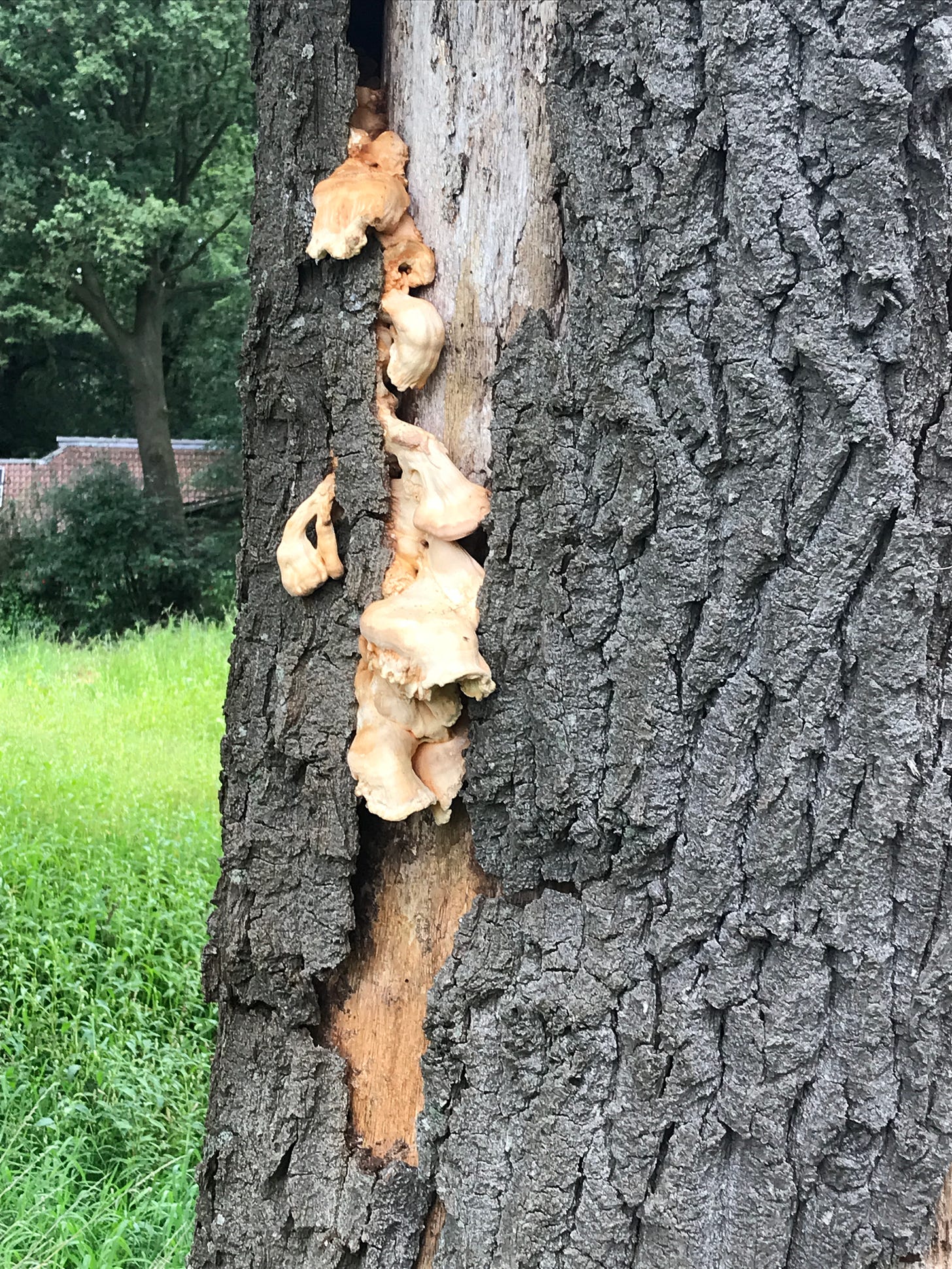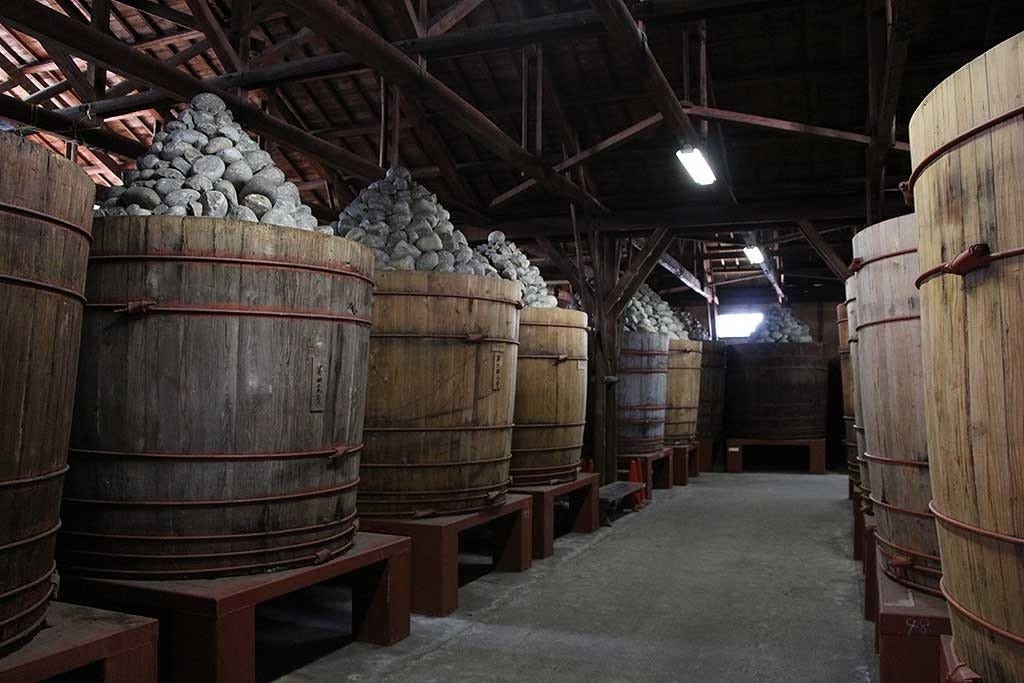The text of this post has been translated from Dutch to English with DeepL. It will be manually edited and streamlined soon.
THE IMAGE of the two trigrams: below the Wind, above a Mountain. Inside the mountain is movement: teeming maggots and worms. A scalding waste dump, a steaming compost heap. There is decay, decomposition and conversion. A host of bacteria, yeasts and fungi are doing their work. In a waste container left in the sun for a long time. In the round cheeses in the caves of Roquefort. In a barrel of wine. And last but not least: inside your own gut.
What do you see and smell when you hear the word spoilage? Rotten fish or aged cider? Poison-coloured fungi or delicate ceps?
Living is followed by dying, that is inevitable. The form of the once-living being, entwined as it always was with its identity, slowly but surely falls apart. But this sad phenomenon is at the same time a blessing. Except for the mummies of some pharaohs, a few bog bodies, loners like Ötzi, and countless fragments of bones, the dead bodies of the people before us have dissolved and disappeared forever. One would hate to think that all those bodies had not disintegrated and were still lying dead somewhere, completely intact. And imagine if the complex puzzle of wood decomposition had not been cracked by fungi. There would be a kilometre-thick layer of dead fallen trees lying on the earth, waiting to slowly transform into coal.
Without death there is immortality. Without decomposition, ultimate sustainability. The world would be one giant pile of things that cannot lose their shape. Mountains of stuff that won't rust, rot or fall apart. Perfect durability, King Midas's nightmare, allowing no change and keeping everything imprisoned in its own rigid form.

The natural way is one of rotting, decay and mouldiness. The dead fish stiffens, the fallen pear softens, what was shiny turns grey. An explosion of micro-life follows and the body of fish and pear becomes the scene of a feast for numerous guests, both invited and uninvited. What follows is a spectacle of unsuspected smells, colours and transformations. A pig dies and after a few days its flesh swarms with maggots. Nothing of the substance of its body is lost, but it takes the form of a mass of maggots, and then of a cloud of flies. Many of whom in turn take the shape of a spider or a bird. A curious sequence of rebirths.
For the fascinating BBC documentary After Life: The Strange Science of Decay entomologist George McGavin orders to build a glass kitchen at Edinburgh Zoo. The kitchen is stocked with a variety of food, enough for a large feast, all laid out visible Day after day, the visiting public can watch through the glass the ongoing processes of decay, breakdown, transformation and shapeshifting. The whole event is captured in the form of a time-lapses. Even if you only see the images, they make you smell the exuberant wine-and-cider smells of the rotting and fermenting fruit. And leave you disgusted when the smell of the leaking fluid of decomposing flesh seems to enter your nose.
The processes of decay offer many opportunities. Controlling rot leads to the many methods of food fermentation. From a prosaic white cabbage and some odourless salt, decomposing micro-organisms conjure a pallet of new smell, taste, texture and colour. How a mountain of white cabbage transforms into a mountain of sauerkraut.
How could we do without this kind of controlled spoilage: cider and wine, chocolate and olives, bread and yoghurt? Watch Fermented, a fantastic documentary on culinary spoilage. Or visit the websites of fermentation masters Sandor Katz and Christiaan Weij: Verrot Lekker.


The wondrous scene of death, decomposition and transformation has fascinated people in all ages. The Liezi, a Taoist text from the 5th century BC, contains a remarkable tale of the endless transitions from one form of life to another. The narrative is devoid of scientific fact, but demonstrates a refined observation and a highly original mind. It still starts modest - with seeds and sprouts - but soon the transformations become wilder - and as so often in living nature - unforeseen and downright bizarre.
When Master Lie traveled to Wei, as they were eating a meal on the way his followers found a hundred-year-old skull. Pulling out the tangle of weeds and pointing to the skull, he looked back at his disciple Bai Feng and said, “Only he and I know we’ve never been born and never die. Is he to grieve, after all? Am I to rejoice? “How many species there are! If a frog becomes a quail, in water it becomes water plantain; at water’s edge it becomes moss. Growing on high ground it becomes plantain; when plantain is on a dung-heap, it becomes crowfoot grass. Crowfoot roots become maggots, the blades become butterflies. Butterflies are evanescent; changing into grubs, they hatch under stoves; shaped like sloughed-off skins, they’re called parrot-plucks. In a thousand days parrot-plucks transmute into birds called dry leftover bones. The saliva of dry leftover bones birds becomes a kind of insect, which turns into a vinegar bug. The vinegar-eating bug produces vinegar flies, vinegar flies produce bacon beetles, bacon beetles produce mosquitoes, mosquitoes produce cucumber flies. “Sheep liver turns to madder, horse blood turns to phosphorus, human blood turns to fox'-fire, kites become sparrow-hawks, sparrowhawks become cuckoos, with cuckoos eventually turning back into sparrow-hawks, swallows become clams, field mice become quails, rotten melons become fish, leeks become amaranth, old ewes become monkeys, fish eggs become insects. Animals on certain mountains reproduce by parthenogenesis, some water birds reproduce by gazing at each other. There’s a totally female species called big waist, and a totally male species called immature ants. Sensitive men are aroused without marrying, sensitive women get pregnant without marrying. Hou Qi was born from a giant footprint, Yi Yin was born in a hollow mulberry tree. Dragonflies are born in moisture, flies are born in wine lees. Weeds grow by bamboo, old bamboo produces insects, insects produce panthers, panthers produce horses, horses produce humans. People eventually resolve into elements; all things and all beings come from elements and all go back to elements.
The Book of Master Lie - translated by Thomas Cleary













